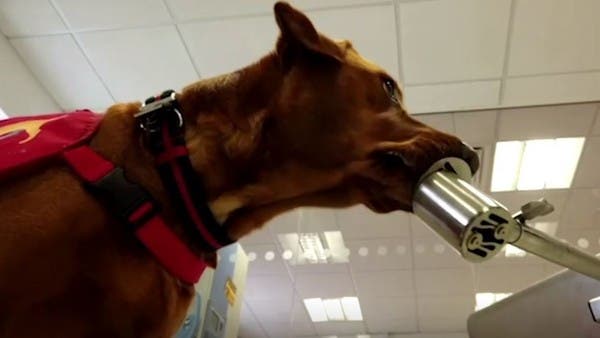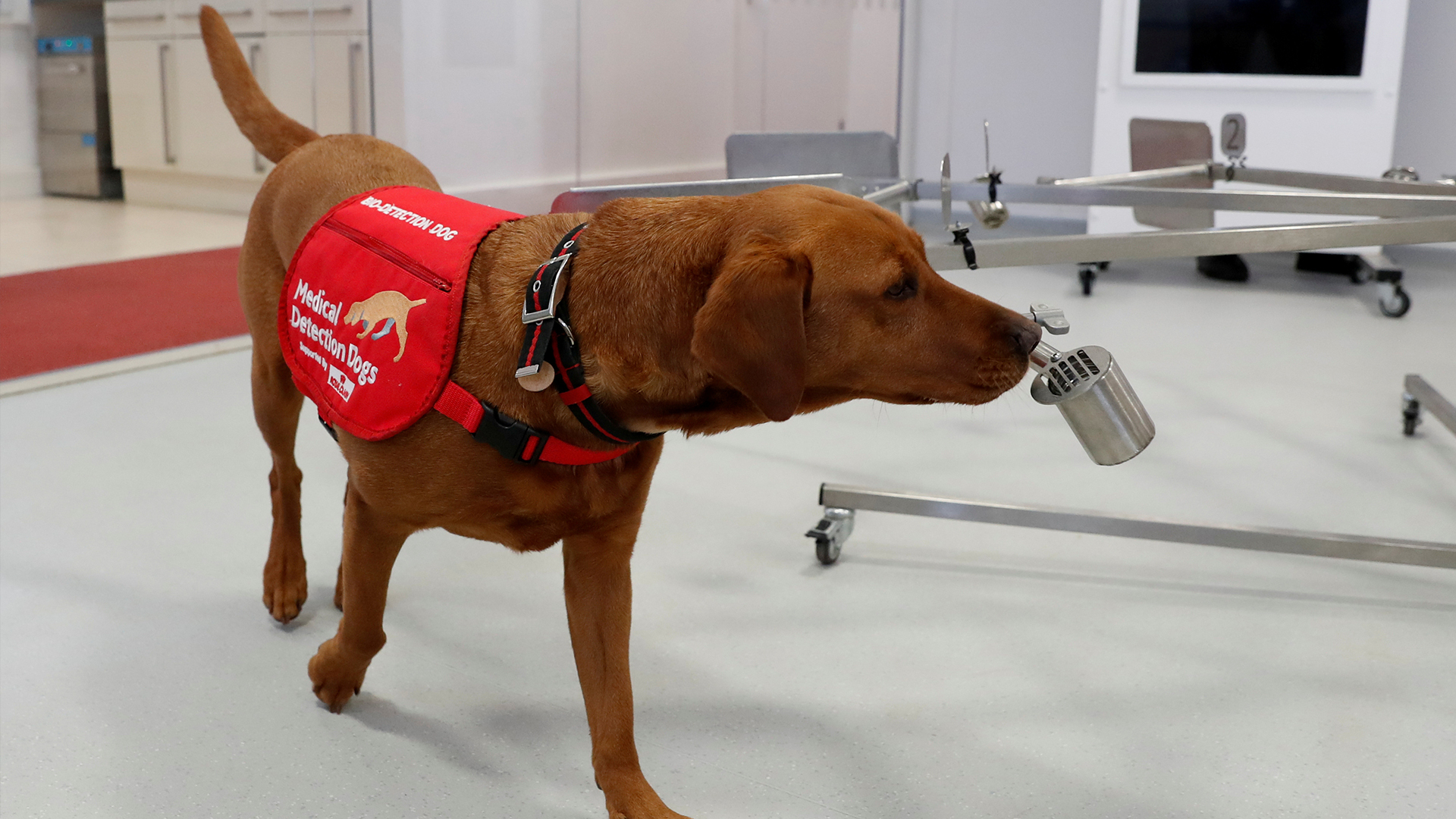 Iran and Britain have started training dogs to sniff out coronavirus infections in humans. The charity who initiated the project in the UK has already trained canines to detect the scent of malaria, cancer and Parkinson’s. If the project works, the detection dogs could be deployed to screen unwitting carriers at public places.
Iran and Britain have started training dogs to sniff out coronavirus infections in humans. The charity who initiated the project in the UK has already trained canines to detect the scent of malaria, cancer and Parkinson’s. If the project works, the detection dogs could be deployed to screen unwitting carriers at public places.
Iran has started training sniffer dogs to detect COVID-19 in a training programme supported by the military, according to the semi-official Mehr news agency. Iran is currently the most-affected country in the Middle East with almost 86,000 reported cases and Over 5000 recorded deaths, although one parliamentary report suggests the figures are higher.
Hamidreza Shiri, the project’s spokesperson, yesterday told IRNA: “Since dogs can detect odours 20,000 times better than humans, they have already been trained to detect some diseases, including malaria.”
The project has been running for two weeks, “In the first phase of the research, we proved that dogs are not being infected by coronavirus; it is now two weeks that dogs are directly working with the virus but multiple tests in different stages show that none of them nor the trainers have contracted the virus,” Shiri explained.
“Since we didn’t know which breed has a better detection ability, we used different breeds including Labrador, Golden Retriever, German Shepherd, and Border Collie,” he added
Similar initiatives have already been underway in the UK, where the charity Medical detection Dogs has trained dogs to spot the scent of malaria, cancer and Parkinson’s disease.
Late last month, the BBC reported that there are plans to conduct trials on the current strain of coronavirus with Durham University and the London School of Hygiene and Tropical Medicine.
Charity boss Dr Claire Guest said it had to find out how to “safely catch the odour of the virus from patients”. “In principle, we’re sure that dogs could detect Covid-19,” she said.
In a statement, the charity also said that dogs can identify changes in skin temperature, meaning they might be able to recognise when someone has a fever, according to the Independent.
UK
Specially trained dogs are being tested to see if they can smell the coronavirus in infected people, by a group of researchers at the London School of Hygiene and Tropical Medicine (LSHTM), Durham University, and the Medical Detection Dogs organization.
LSHTM said at the end of last month they are intensively training a group of dogs to smell the COVID-19 virus in people, even asymptomatic ones, and that they could be ready in six weeks to help provide a rapid, non-invasive diagnosis.
The researchers believe that the dogs could supplement ongoing testing by screening for the virus accurately and rapidly, potentially triaging up to 250 people per hour.
Professor James Logan, Head of the Department of Disease Control at LSHTM and Director of ARCTEC, says: “Our previous work demonstrated that dogs can detect odours from humans with a malaria infection with extremely high accuracy – above the World Health Organization standards for a diagnostic.
“It's early days for COVID-19 odor detection. We do not know if COVID-19 has a specific odor yet, but we know that other respiratory diseases change our body odor so there is a chance that it does. And if it does dogs will be able to detect it. This new diagnostic tool could revolutionize our response to COVID-19.”
Dogs searching for COVID-19 would be trained in the same way as dogs already trained to detect diseases like cancer, Parkinson’s and bacterial infections – by sniffing samples in the training room and indicating which contains the disease or infection.
They are also able to detect changes in the temperature of the skin, so they could potentially also tell if someone has a fever.
Dr Claire Guest, CEO and Co-Founder of Medical Detection Dogs, says: “In principle, we’re sure that dogs could detect COVID-19. We are now looking into how we can safely catch the odour of the virus from patients and present it to the dogs.
“The aim is that dogs will be able to screen anyone, including those who are asymptomatic and tell us whether they need to be tested. This would be fast, effective and non-invasive and make sure the limited NHS testing resources are only used where they are really needed.”
Professor Steve Lindsay at Durham University says: “If the research is successful, we could use COVID-19 detection dogs at airports at the end of the epidemic to rapidly identify people carrying the virus. This would help prevent the re-emergence of the disease after we have brought the present epidemic under control.”.More photos below.






Comments
Post a Comment